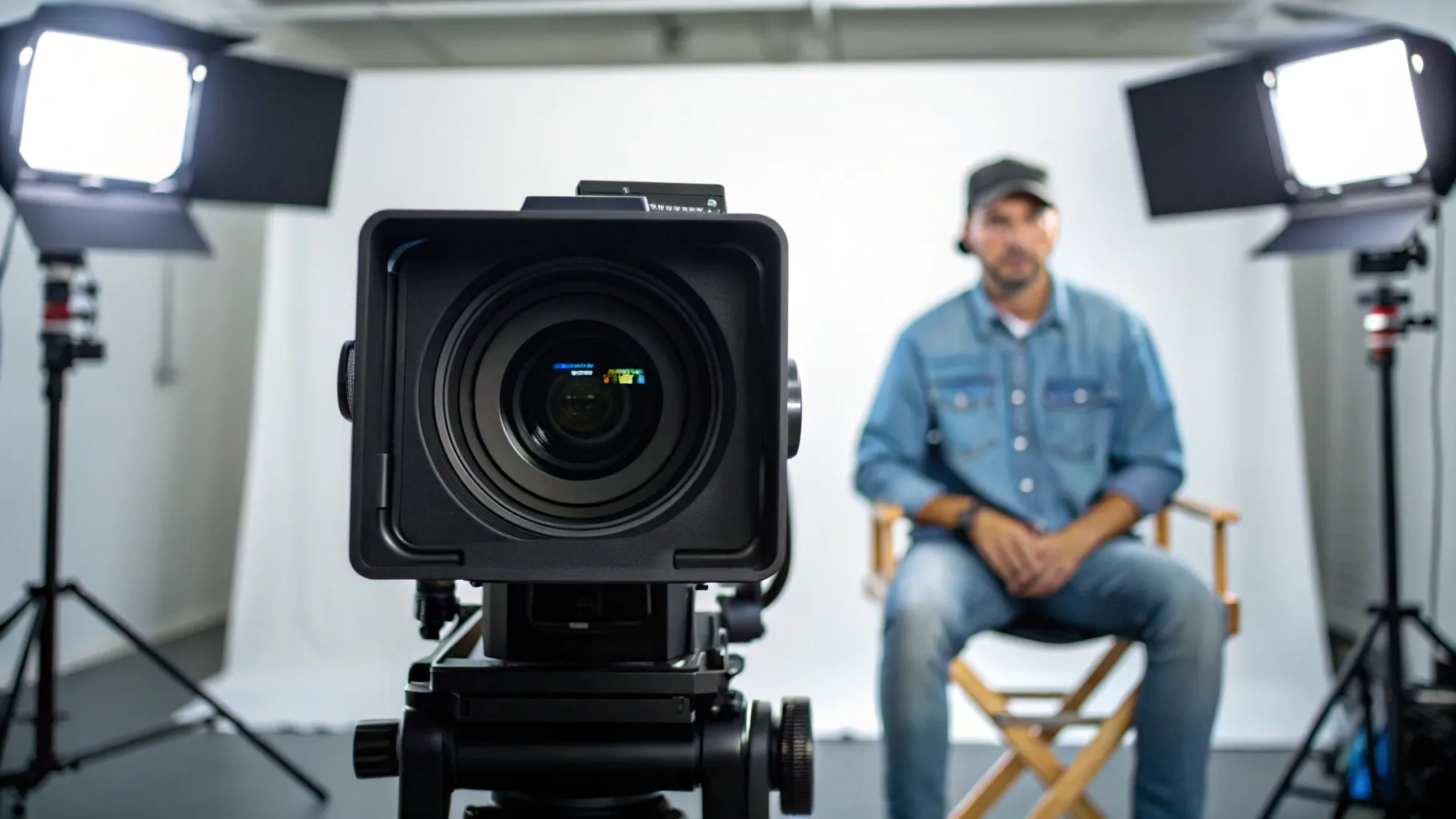What is Social Media Analytics For Business? Find Out Here!
Oktarina
August 25, 2025
11 min read

Ever wondered how big brands succeed on social media? The secret often lies in social media analytics! In today’s digital era, social media isn’t just a place to socialize, but a crucial platform for businesses to grow. But how can businesses know what works and what doesn’t? The answer lies in what is social media analytics, which involves collecting data and analyzing relevant data from social media platforms to understand content performance, audience behavior, and market trends. Social media analysis is the process of examining data from social platforms to assess audience sentiment, track engagement trends, and derive strategic insights. Social media data analytics is a critical tool for measuring performance and guiding strategy. After understanding content performance and audience behavior, interpreting social media data helps derive actionable insights for business growth.
In this article, we’ll dive deeper into social media analytics, its benefits for businesses, the challenges often faced, and practical tips you can apply right away to enhance your social media strategies. Keep reading to learn how social media can support your business growth!
What is Social Media Analytics?
Social media analytics is the process of gathering, measuring, and analyzing data from social media platforms like Instagram, Twitter, or TikTok. Social analytics tools and social media analytics platforms are essential for gathering and interpreting this data. The goal is to gain insights into how content performs, how much audience engagement is happening, and the impact of marketing campaigns. In short, it’s a way to measure whether your social media strategy is effective or needs adjustments.
Key components of social media analytics include:
- Engagement MetricsThese are key indicators of how audiences interact with your content. Metrics like likes, comments, shares, and overall interaction rates give you an idea of how well your content resonates with your followers. Performance metrics are used to benchmark and measure campaign effectiveness.
- Reach and ImpressionsReach measures how many people saw your content, while impressions measure how many times your content was shown. These metrics are crucial for understanding how wide your message is spreading. Reach metrics specifically tell you how many accounts see your content on their timeline or feed.
- Audience DemographicsBy knowing the age, gender, location, and interests of your audience, you can create more relevant and personalized content. Audience analytics provides detailed demographic and behavioral insights about your social media audience. For example, Gen Z in Indonesia prefers short videos on TikTok, and understanding this helps craft content that speaks directly to them.
- Content PerformanceKnowing which type of content (e.g., videos, images, or stories) performs best is vital for refining your approach and focusing on the content that delivers the best results. Social media insights and social analytics help identify top-performing content and inform future strategies.
For instance, major companies like Adidas use social media analytics to target their audiences more effectively. Analyzing social media data allows these companies to gain a competitive edge. Similarly, small businesses in Indonesia can use Instagram data to improve the results of their ads. This data is invaluable for increasing visibility and boosting product sales.
In Indonesia, 70% of the population is active on major social media platforms (according to Hootsuite, 2024), highlighting the vast number of social media users and making social media analytics even more crucial for businesses looking to stay competitive in the digital market. This data helps businesses understand what their audience likes, when they are active, and which content types work best. Monitoring social media trends is also essential to stay ahead in the digital market. Each social media platform has unique analytics features and audience behaviors, requiring tailored strategies for effective analysis.
Benefits of Social Media Analytics for Business

Social media analytics reports and a comprehensive social media analytics report provide businesses with in-depth insights across platforms, enabling data-driven decisions and improved marketing outcomes. Here are the key benefits that businesses can gain from social media analytics:
- Better Understanding of Your Audience
Social media analytics helps businesses gain a deeper understanding of their audience. For example, you might find that Gen Z in Indonesia prefers short TikTok videos. With this data, you can create content that is more aligned with their preferences, which will ultimately improve engagement and broaden your reach. - Optimizing Marketing Strategies
Analytics helps businesses identify which content performs the best. For instance, if tutorial videos on Instagram are getting more engagement than static images, you can focus more on creating videos. This also allows you to allocate your ad budget more efficiently, ensuring the best results at a lower cost. By analyzing data, you can continuously optimize your social media marketing efforts for better performance. - Increasing Engagement
With social media analytics, businesses can quickly respond to trends or comments from their audience. This fosters stronger relationships with followers, improving customer loyalty. For example, engaging with viral trends or directly interacting with followers increases your chances of boosting engagement. - Measuring ROI (Return on Investment)
Social media analytics allows businesses to measure the impact of their campaigns on sales or brand awareness. For example, an e-commerce business might see a 15% increase in conversions simply by adjusting their ad strategy based on the right insights, leading to a higher ROI. Tracking social media campaign performance also helps assess the effectiveness of lead generation efforts and overall marketing impact. - Competitor Analysis
With social media analytics, businesses can conduct competitive analysis to monitor and benchmark their competitors’ strategies, such as the types of content they create or the hashtags they use. This offers valuable insights into what’s working for competitors and helps businesses adjust their own strategies to stay ahead of the game.
Tracking social media metrics across multiple channels, social media channels, and multiple social media channels is essential to improve overall social media performance and demonstrate ROI. Businesses should also track social media analytics to inform strategic business decisions and maximize the effectiveness of their campaigns.
Audience Insights
Audience insights are a powerful asset for any social media marketing strategy. With the help of social media analytics tools, you can access detailed information about your target audiences, including their location, age, gender, and interests. Analyzing audience demographics enables you to create targeted content, segment your audience personas, and diversify your messaging across different social platforms. Regularly monitoring audience growth and demographic changes ensures your content remains relevant and your reach continues to expand. For example, if you notice a shift in your audience’s age group or interests, you can quickly adapt your content style and platform focus. By leveraging audience insights, marketers can design more effective marketing campaigns that truly connect with their target audiences and drive higher engagement and conversions.
Influencer and Competitor Analysis
Influencer and competitor analysis are crucial elements of a successful social media strategy. Social media analytics tools make it easy to identify influencers who align with your brand and target audience, allowing you to track their reach, engagement, and content quality. At the same time, competitor analysis helps you monitor your competitors’ social media strategies, including their content types, engagement rates, and audience growth. By analyzing influencer analytics and competitor activity, you can uncover opportunities for collaboration, spot gaps in the market, and differentiate your brand. These insights empower marketers to refine their social media marketing strategies, stay ahead of the competition, and achieve greater business success through informed decision-making.
Read more: What Is the Role of Social Media in Digital Marketing? Find Out Here!
Challenges in Using Social Media Analytics Tools

While social media analytics is incredibly useful, businesses face some common challenges:
- Data Overload
Social media platforms generate a huge amount of data, and with so many metrics (like impressions vs. engagement), it can be overwhelming to know what to focus on. Without a clear strategy, businesses can find it difficult to derive meaningful insights. Using social media monitoring tools can help manage and prioritize the most relevant data for your goals. - Limited Resources
Many small businesses in Indonesia lack the expertise or budget for advanced analytics tools. While there are free or affordable tools available (such as Instagram Insights), fully utilizing social media analytics may require additional resources or expertise. Native analytics, the built-in tools provided by major platforms, are free but may require time to use effectively. - Algorithm Changes
Platforms like Instagram and TikTok often update their algorithms, which can affect how content is displayed and how much of your audience sees it. Businesses must stay updated on these changes to ensure that they can still interpret the data effectively and adjust their strategies accordingly. Social listening and natural language processing can help businesses adapt by understanding audience sentiment and identifying emerging trends in response to algorithm updates. - Data Privacy
With privacy regulations like Indonesia’s Personal Data Protection Law and GDPR in Europe, businesses must be cautious about how they collect and use audience data. Failing to comply with these regulations can lead to legal issues, so understanding and following the laws is essential. Social listening can be used to monitor conversations and brand mentions while respecting privacy regulations, and natural language processing can help analyze public sentiment without violating user privacy. - Cross-Platform Integration
Often, businesses use multiple social media platforms like Instagram, Twitter, and TikTok, each with its own set of metrics and ways of measuring data. Combining this data for a comprehensive analysis can be challenging, making it harder to get a full view of your social media performance. Tools like Google Analytics and paid social analytics can help integrate and analyze data from different social media channels, providing a more complete picture. Effective social media analytics tools should include features for audience segmentation to better understand customer demographics.
Tips for Leveraging Social Media Analytics for Business
To maximize the potential of social media analytics, here are some tips to enhance your marketing strategies:
- Set Clear Goals
Focus on metrics that align with your business goals. For brand awareness, prioritize engagement and impressions. For sales, focus on clicks and conversions. - Choose the Right Tools
Small businesses can benefit from tools like Instagram Insights. For larger businesses, tools like Hootsuite or Sprout Social offer deeper insights and better multi-platform integration. Hootsuite, in particular, is a comprehensive social media management tool that offers powerful social media analytics with cross-platform reporting. - Conduct Regular Analysis
Make it a habit to review your data regularly, whether weekly or monthly. This will help you track trends and adjust your strategy in real-time. - Target Local Audiences
Use demographic data to target local audiences, especially in regions like Jakarta or Bali, with content tailored to their cultural and language preferences. - Perform A/B Testing
Experiment with different content formats (carousel posts vs. videos) and see which works best for engagement. A/B testing helps you refine your content strategy for maximum effectiveness. - Partner with a Social Media Marketing Agency
If managing data and social media strategies feels overwhelming, partnering with a social media marketing agency can be a big help. Such agencies leverage advanced analytics tools and specialized expertise to develop platform-specific strategies, analyze campaign performance, and deliver actionable insights to maximize your social media results. Juara Production is a great choice for helping you analyze social media analytics and design data-driven content strategies. They can also manage ad campaigns and provide training for your team. Marketing professionals, social media marketers, and social media managers use analytics to optimize campaigns, inform strategy, and ensure your social media efforts achieve your business objectives.
Read more: Which Social Media Is Best For Digital Marketing? Find Out Here
Analyze your Social Media to Grow Your Business with Juara Production!
In conclusion, social media analytics is a vital tool for understanding your audience, optimizing your strategy, and improving performance across social media platforms. With the right insights and professional support, your business can thrive in the competitive digital market.
At Juara Production, we help businesses leverage social media analytics for better growth. Whether you’re a startup or an established company, we specialize in analyzing social media performance, crafting data-driven content strategies, and managing ad campaigns for optimal results. Our Data and Analytics Services, are tailored to your business needs and come at competitive prices, starting from Rp5 million for analytics packages.
Ready to elevate your social media game? Contact Juara Production today for a consultation and let us help you harness the power of social media analytics to take your business to the next level!





